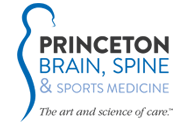Acute/Chronic Pain
Acute & Chronic Spine Pain Treatment
PA & NJ Back Pain Specialists
Pain is the body’s warning signal that there is a problem. During illness or injury, pain begins in receptor nerve cells in the organs and under the skin, traveling along nerve pathways to the spinal cord, which carries the message to the brain.
As one of the most common U.S. medical problems, back pain may begin abruptly due to an accident or injury or may develop over time due to age-related spine degeneration. Much of our daily activity depends on our spine health. When pain threatens to derail your daily life, trust the award-winning neurosurgeons at Princeton Brain, Spine & Sports Medicine to provide cutting-edge diagnosis, non-surgical intervention, minimally invasive and traditional surgical solutions tailored to your needs.
Minimally Invasive Surgery for Pain
When conservative treatment fails to successfully treat your spine pain, minimally invasive or traditional surgery may be required. Minimally invasive spine surgery usually results in the same outcome as traditional surgery, but with smaller incisions, less tissue disruption and shorter recovery times. In cases where traditional “open” spine surgery is needed, our elite team of neurosurgeons is fellowship-trained to provide skilled, exemplary care using advanced surgical techniques.
Leading Neurosurgery Expertise for Back Pain
Offering care in top-rated area hospitals and at seven state-of-the-art campuses in NJ and PA, the PBSSM team fuses compassionate, patient-focused care with cutting-edge treatment practices. Treating you like our own family, we’re wholly focused on restoring our patients’ healing and quality of life.
Affecting 80% of men and women at some point in their lives, back pain impacts our patients’ physical, emotional and psychological health. Taking a multi-disciplinary approach to subacute and chronic pain, PBSSM works with you to reduce or eliminate back pain and return you to healthy activity.
Call 609.921.9002 in central and southern New Jersey or 215.741.3141 in northeastern Pennsylvania. To learn more about spine conditions and back pain, click here.
Additional Resources
Spinal Matters: A Backache or Something More Serious? - Dr. Seth Joseffer, Princeton Health TV
Request an Appointment
Submit an appointment request on our patient portal or contact our New Jersey and Pennsylvania campuses to speak with a patient advocate.
